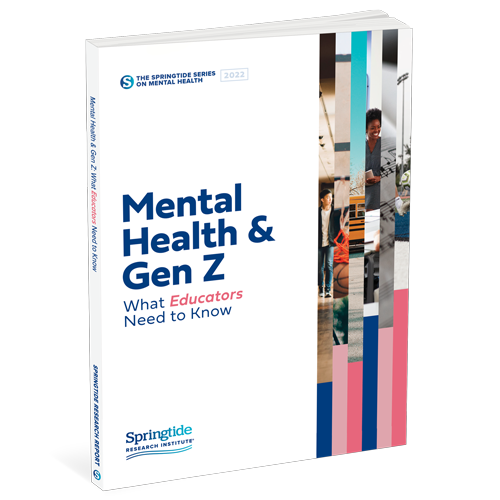
How Can You Make Your School More Mental-Health Friendly? Five Questions for Educators
Another school year is here, and students are making their way back into the classroom. School is where young people spend a lot of their time, and educators can have a great influence on students’ well-being.
In Mental Health & Gen Z: What Educators Need to Know, we shared data and insights that emerged from our close listening to young people, which showed just how many are struggling with their mental health. Some statistics:
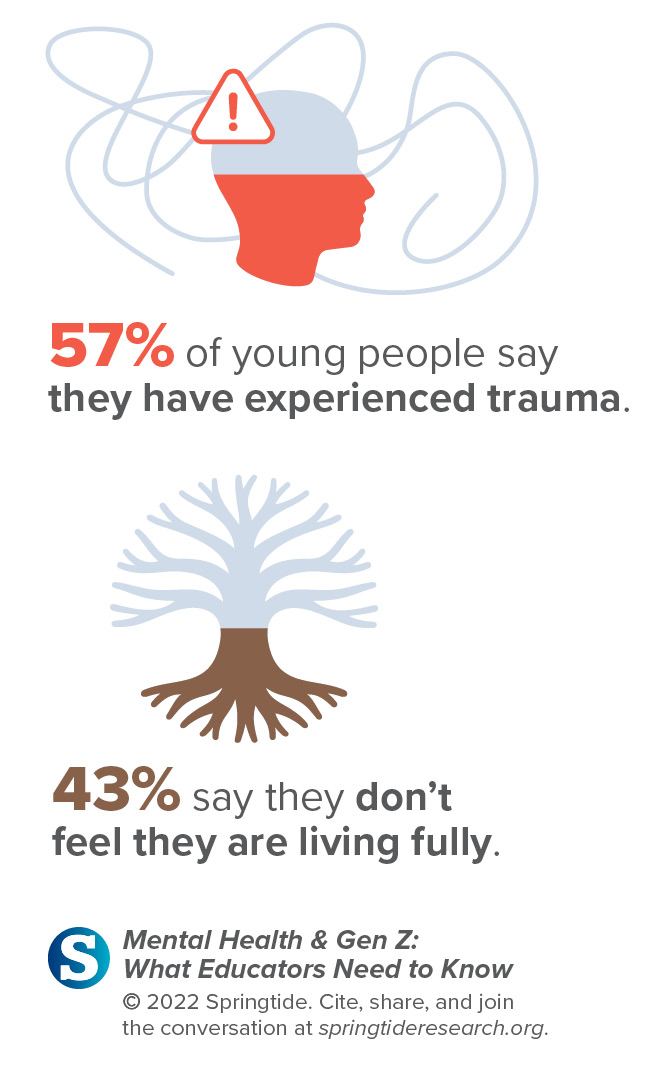
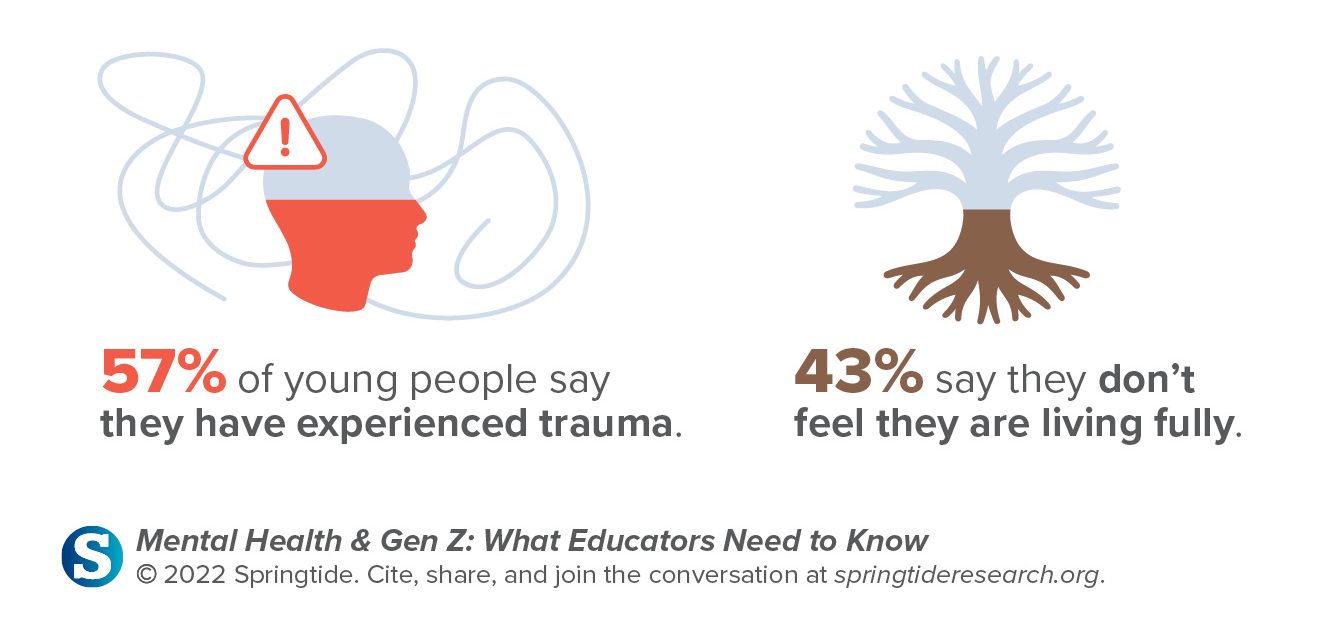
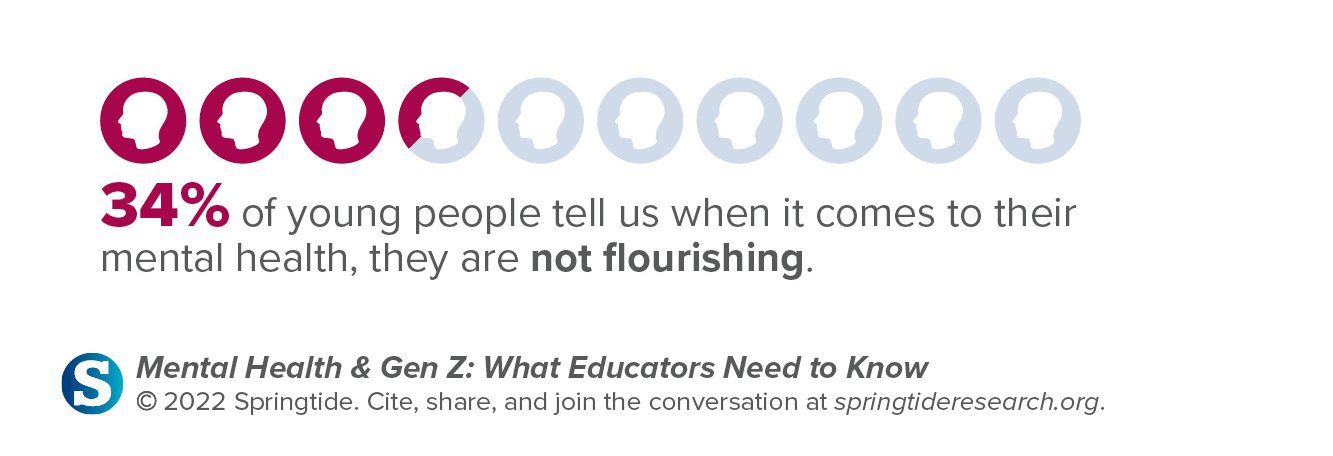
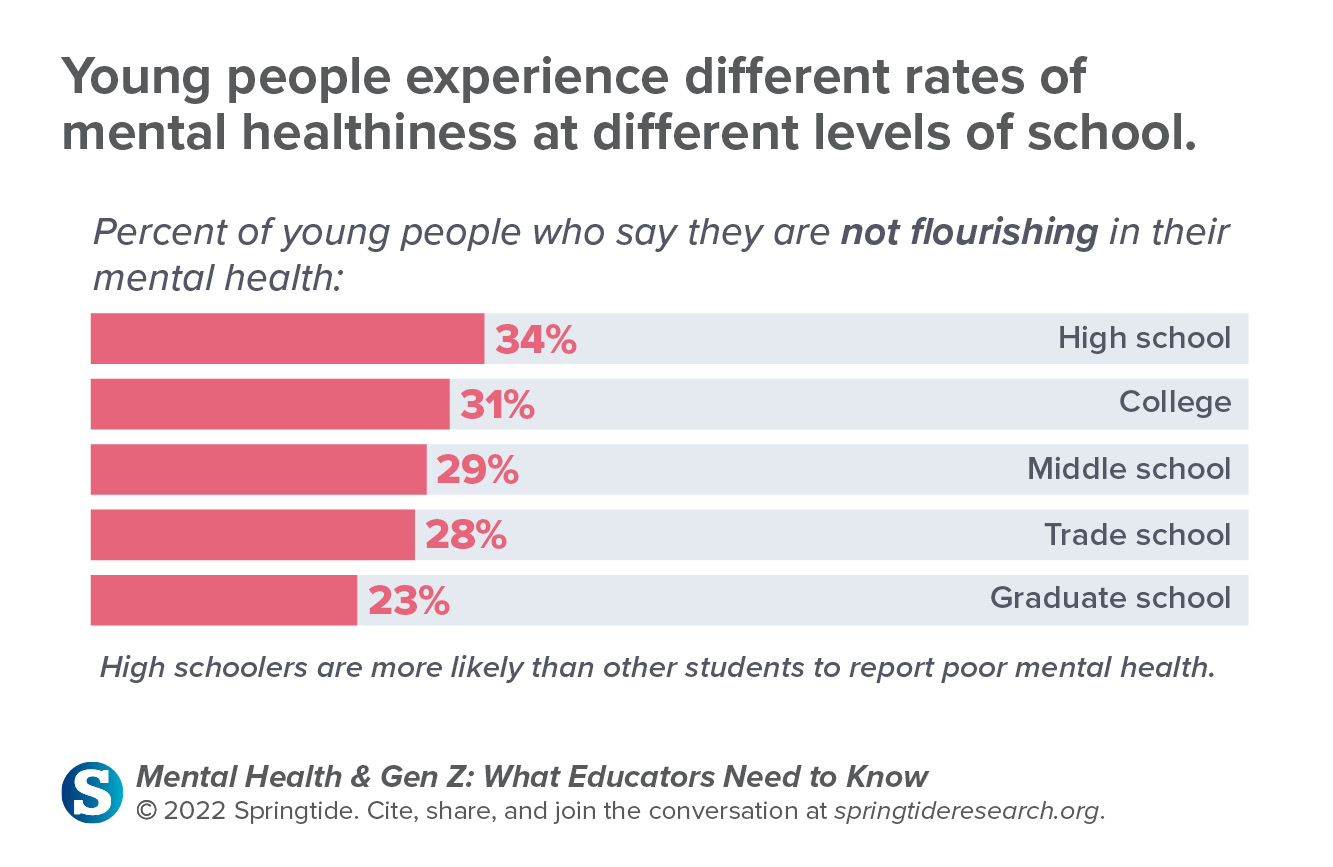
Educators are no strangers to the mental-health crisis that plagues today’s young people—and they have the power to make shifts and changes that turn school environments from stressful to supportive.
Below are prompts designed for those in education in various roles to think through ways to bring student mental health to the forefront. Educators can use this as a self-reflection tool to create a more meaningful connection to this work, or they can shift and adapt the prompts and share them with other teachers and administrators.
Take some time to ponder or journal about the following prompts:
-
Name a young person in your life who has been impacted by the mental-health epidemic.
Whether alone or in partnership with others, pause and hold that young person in your heart and mind for a few moments. Take time to write down or speak aloud what you hope, pray, or wish for them when it comes to their mental health, including what you wish you could do.
-
Take quick stock of the mental-health programs in your school.
How do the systems in your school respond to and support the mental-health concerns of students?
-
Young people often say that talking about their mental health with others helps them cope—and when it comes to challenges with their mental health, young people don’t share with just anyone.
They want to talk to people they trust, and they admit that trust comes from a variety of sources: from knowing someone for a long time, from having their experiences validated and their needs supported, from having a sense of mutual exchange and respect, and more. What are you doing as an individual or as a school to build trust with the young people in your care?
-
Being a trusted adult might sound intimidating at first.
What support or training do adults in your school need in order to feel more comfortable with the idea of being a trusted adult? Does your institution offer any resources, training, or opportunities toward these efforts? How can your school better support you in this process?
-
What do students understand the prevailing or dominant expectations at your school to be?
Ask them what tools they are given that help them succeed and what else they need to help them succeed. (This could be a class discussion or part of individual conversations with students.)
BONUS
Take time to jot down two or three actions you can take right away—no matter how small: Strike up a conversation with other educational professionals, reach out to students to learn more, or find out what resources may need to be made more readily available so more students can benefit. Small steps can equal big strides.
What if you could build a mental health friendly culture at your school instead of just responding to mental health crises?



